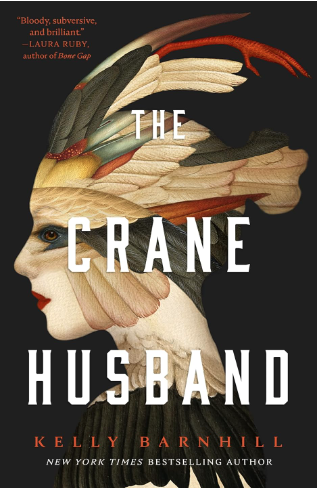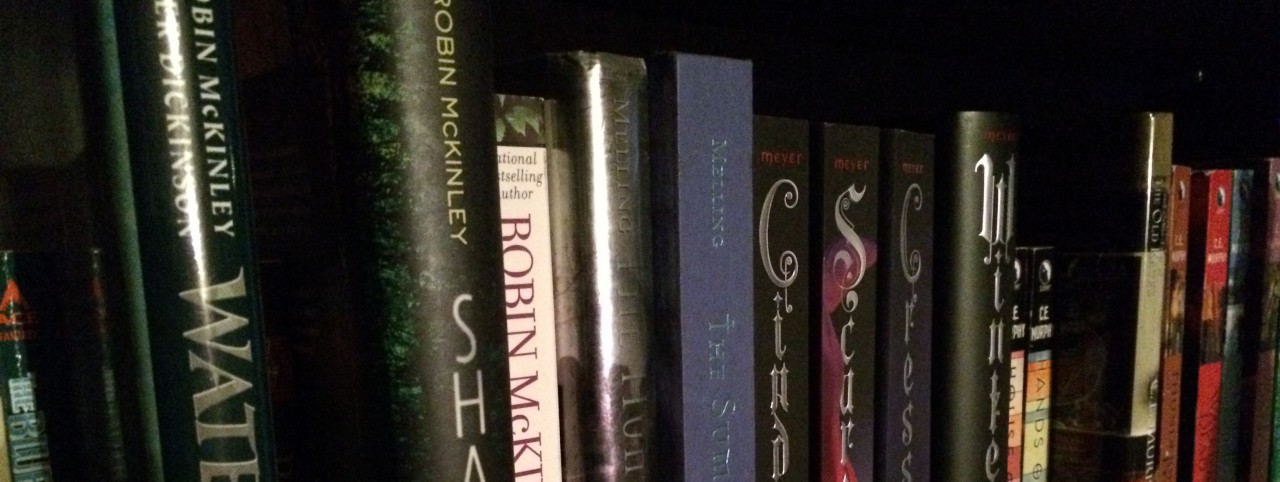Next up: “The Crane Husband” by Kelly Barnhill

Summary
“A fifteen-year-old teenager is the backbone of her small Midwestern family, budgeting the household finances and raising her younger brother while her mom, a talented artist, weaves beautiful tapestries. For six years, it’s been just the three of them—her mom has brought home guests at times, but none have ever stayed.
Yet when her mom brings home a six-foot tall crane with a menacing air, the girl is powerless to prevent her mom letting the intruder into her heart, and her children’s lives. Utterly enchanted and numb to his sharp edges, her mom abandons the world around her to weave the masterpiece the crane demands.” (from Macmillan Publishers)
My Thoughts
I did not like this novella. I think there were two main problems that really kept me from enjoying the story: the prose, and the purpose. Many reviews I’ve seen mention something about how it was “lyrical” or “beautifully written” and I just don’t see it. Many of the metaphors and similes used just did not click for me. One that I remember particularly causing me to roll my eyes was when the crane strikes at a mouse in the kitchen: “the mouse popped like a balloon.” No it did not. Was this mouse under pressure? The imagery is ridiculous. The writing generally felt clunky and hamfisted. There are contrivances that are thinly veiled, if they are veiled at all. One of these is a side character that the main character (who to my knowledge is never named) gets an old drone from, so she can spy on her mother and the crane. The fact that this side character isn’t named and when we meet him the MC completely ignores anything he says just to interrupt him to ask for a drone is, like, meta-textually ironic. Silly boy, thinking he’s people when he’s just a plot contrivance.
Similarly, the MC having learned how to pick locks and shoot a shotgun (from her now-deceased dad, which also doesn’t make sense based on what characterization we’re given for him… why did he know how to do these things??) is so blatantly so that she can sneak into her mom’s workshop and kill the crane-man that I knew immediately what the climax of the story would be the millisecond they showed up in the story. Forget Chekov’s gun, these were Chekov’s hammer-to-the-face. If you’re going to foreshadow at least finesse it so it makes sense contextually.
Two of the main characters were supposed to be 15 and 6 years old. They did not sound like they were 15 and 6; perhaps especially the 6 year old. And yes, I get that the life situation they were in is generally said to “cause kids to grow up too quickly” but it does not literally cause their physiological and neurological development to increase. I continually expected these characters to be twice their ages based on their actions and voices within the narrative.
The purpose of this novella escapes me. There are a lot of “themes” listed around the internet as being included in this story, but personally I think there should be more commentary (whether textually or meta-textually) about a topic for it to be called a theme. With that in mind, the only theme I really see in the novella is domestic abuse, and not a whole lot is said about it by the story. Basically what we get is “domestic abuse happens, it sucks, it hurts families” and that’s about it. None of the characters really engage with the topic in any meaningful way. I didn’t need this melodramatic short story to tell me that abuse is bad, thanks.
A lot of the messaging seems rather muddy and I still haven’t figured out what any of it is supposed to be saying. We’re told in the novella that cranes are vicious, horrible predators and then that’s echoed in the crane husband being abusive. But then the mother seems to yearn to become a crane, and in fact does, in the end. So… she… wanted to become an abuser? And then in the epilogue the MC has a crane at her window that seems to be whispering to her and kinda-sorta enticing her to become a crane too? Is this supposed to be a comment on the cyclical nature of abuse? But the mother-crane seems to mean something different than the crane husband – we’re also told that mothers in this family grow feathers and fly away. This symbolism might’ve worked better if the husband hadn’t be a crane and that women in the family who were abused (it’s heavily implied that the MC’s grandfather was abusive) became cranes to escape the abuse. Or maybe if the mother had been the abusive one, since as it stands I have no idea why the crane husband is there. In the original folktale, a farmer helps an injured crane who then comes back to return the kindness by marrying and bringing good fortune and prosperity to the farmer. In this novella, we do get that injured-helped-returns bit, but… the crane husband doesn’t do anything. He just has sex with and physically abuses the mother, and for some reason forces her to make an elaborate tapestry that maybe helps her transform into a crane herself?? But… why? The mother says she loves him, but again, why? It felt like she was ensorcelled to think that, and maybe she was but then… why? What was the crane husband getting out of any of this? Sex? He didn’t seem to actually like the mother at all (or the kids), he wasn’t getting any money out of the mother’s art business, he didn’t seem to be actually “returning the favor” that was the crane wife’s motivation in the folktale. (I’m not even going to touch how weird it was that the MC shot and ate the crane husband in the end.)
I honestly feel a little gaslit by this book and the gushing reviews it’s received. It didn’t do anything particular different or powerful as a story about domestic abuse, it had incoherent messaging, and the hand of the author was so blatant as to completely obfuscate any internal reasoning for character actions and motivations. Because of the prominent theme of abuse and use of art in the narrative, I couldn’t help but compare this to “Pet” by Akwaeke Emezi. In my opinion, “Pet” tackled this topic much, much better.
Rating

Warnings
Domestic abuse, infidelity, possible sexual violence, terminal illness and death
